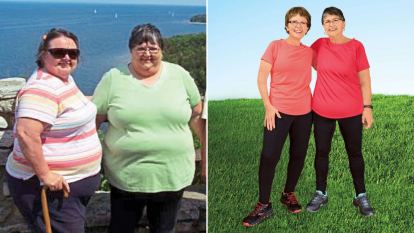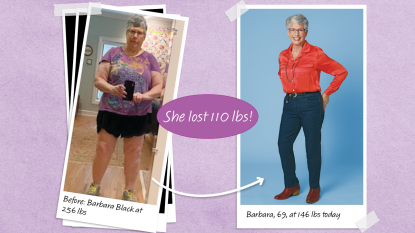One in Eight Women May Suffer From a Thyroid Condition — Here Are 3 These Preventative Measures to Take

When it comes to protecting our health, we’re all used to hearing about how to take care of your heart, mind, and bones. But what about your thyroid?
According to the American Thyroid Association, nearly 20 million Americans deal with thyroid conditions, whether that’s an overactive gland, an under-active one, or something else. However, the numbers are heavily skewed by gender; somewhere between one in eight and one in 10 women will suffer from a thyroid condition in their lifetime, and women are five to eight times more likely to deal with thyroid complications than men.
Hypothyroidism, where the gland doesn’t produce enough hormones, is the most common thyroid problem, and it can lead to all sorts of symptoms in women, including fatigue, brain fog, hair loss, lack of sex drive, and constipation. Additionally, over 60 percent of people with a thyroid condition don’t realize it since it’s easy to confuse a problem such as hypothyroidism with run-of-the-mill tiredness. “For example, you may sleep too much and still not feel rested,” explains Marina Tarasova, co-founder and COO of Paloma Health, the first virtual clinic to treat hypothyroidism. Not to mention, women also need to worry about Hashimoto’s disease, an autoimmune disorder that’s the most common cause of hypothyroidism.
Hormone treatments and other interventions are available if a patient has diagnosed hypothyroidism or Hashimoto’s disease, but for those who aren’t currently diagnosed with a thyroid condition or may be dealing with the early onset of symptoms, there are plenty of preventative measures to take now.
Tarasova says it’s important to focus on your diet and cut out whatever may be affecting your autoimmune health, especially any particularly inflammatory foods. “You may not need to cut everything out, it might be just one thing,” she explains. For instance, you may end up just needing to cut something like soy or processed sugar from your diet as opposed to seemingly everything. That’s where Paloma Health’s free 12-Week Hashimoto Protocol app, which offers a holistic approach to managing symptoms, can come in handy. It can help you figure out what foods to try eliminating and how to do so in a measured and healthy way.
Second, Tarasova says that it’s also important to make sure you’re getting a full range of vitamins and minerals to support thyroid health. Maybe you’re not getting enough selenium in your diet, which is critical for thyroid function, and that’s causing a worsening of symptoms. Nutritionists and doctors through Paloma Health or your own healthcare provider can work with you pinpoint those changes. As we all know by now, not all diets are created equal, and sometimes a little assistance in figuring out what a balanced eating regimen looks like can make a huge difference.
Lastly, Tarasova says that reducing stress and getting more sleep are two of the easiest ways to also reduce your risk of thyroid complications and also manage any symptoms you might notice. “A lot of times, women will say, ‘I’m fatigued and don’t know why,’ but they really are only getting five or six hours of sleep,” she says. “You really have to commit to [these steps].”
While all of these measures may sound simple, they can have an incredible impact on your thyroid health, not to mention your overall well-being!













